

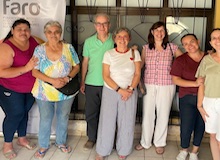
The Teenage Mothers project of ‘Alianza Solidaria’ in Bolivia helps young mothers between the age of 12 and 18. “It's a light to enlighten them”, says one of its leaders.
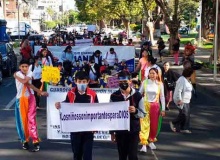
Bolivian organisations and citizens marched on Children's Day to demand attention and protection for children, as well as to prevent all forms of violence against children.
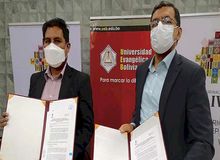
The university offers its facilities, staff and equipment to the Ministry of Health. Meanwhile, Costa Rican evangelical MPs call on the nation to pray for those suffering from coronavirus.
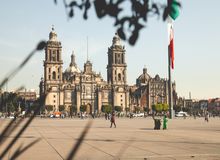
Brazil and Mexico are the second and fourth countries with more deaths worldwide. Latin American evangelicals have been helping those affected by Covid-19 since the beginning of the pandemic.
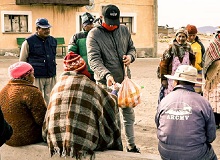
A medical doctor in La Paz asks to “pray that the infections do not grow exponentially”.

“In these last protests against electoral fraud, the churches were with the people, praying in the streets”, an evangelical pastor explains.

Evo Morales announces an agreement for an external audit of last week’s vote. The National Evangelical Association of Bolivia calls to “avoid conflicts between brothers”.

The team of medical doctors were taking part in a humanitarian trip with the NGO MedFund. “Pray for every family member and survivor”.

“There is neither a primary nor a secondary church like before”, President Evo Morales said. Some evangelical denominations reject the law, arguing that it entails an interference by the state.

The draft law seeks the independence of any religion, and to optimize the times and procedures for the granting of legal entity to churches and religious evangelical entities.

Christian leaders, politicians and journalists from nine countries connected on a live video call to launch the new media project.

The World Evangelical Alliance Advocacy Officer Albert Hengelaar defended the rights of the religious minorities to live their faith without restrictions.

Journalist Mireya Elizabeth Garrón speaks of the socio-political crisis in Bolivia and analyses the role of evangelical churches in the marches that helped revoke the new Penal Code.

The President of Bolivia says he revokes it “to avoid confusion”. Evangelicals were against a law that “could severely limit the organization of evangelistic activities”.

The new Penal Code criminalises evangelism and other religious activities. Christian leaders unite to offer “solutions through sincere and proactive dialogue”.

The new Penal Code to be approved under President Evo Morales sanctions religious “recruitment” with 7 to 12 years of imprisonment.

Amish's total current population is about 308,000, and it doubles every 22 years. New settlements were created in Bolivia, Argentina and Canada last year.

Las opiniones vertidas por nuestros colaboradores se realizan a nivel personal, pudiendo coincidir o no con la postura de la dirección de Protestante Digital.